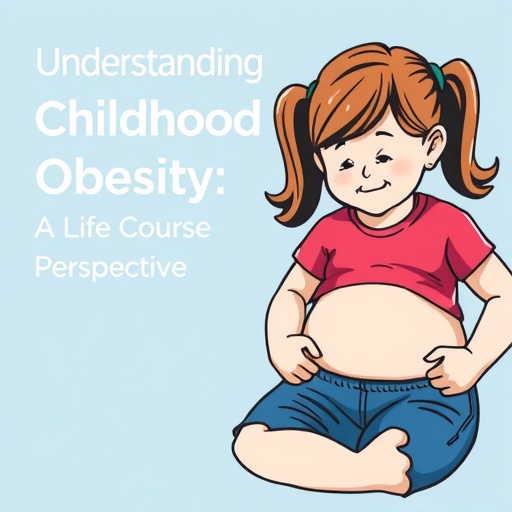
In recent years, the importance of building sustainable and resilient health systems has become a focal point in public health discourse around the globe. Countries are increasingly recognizing that a robust health system is not only crucial for delivering healthcare services efficiently but also vital for safeguarding public health during crises, such as pandemics or natural disasters. The research conducted by Oliveira, Tavares, Miranda, and their colleagues, titled “A novel policy dialogue to build sustainable and resilient health systems: findings from PHSSR Portugal,” sheds light on innovative strategies that can initiate essential dialogues among policymakers and stakeholders.
The pressing need for resilient health systems was starkly highlighted during the COVID-19 pandemic, which laid bare the vulnerabilities and inadequacies present in many healthcare systems worldwide. The researchers noted that, while health systems around the world managed to respond to the immediate threats posed by the virus, they also uncovered systemic deficiencies that need addressing. Their study emphasizes that the pandemic has necessitated a shift in perspective—a movement from merely responding to health crises to proactively designing health systems that are equipped to withstand future shocks.
One of the critical ingredients for the development of resilient health systems is open, engaging policy dialogue. The researchers advocate for cultivating environments where diverse stakeholders—from government officials to healthcare providers and community members—can share their perspectives and experiences. Such dialogues are essential for understanding the multifaceted challenges that health systems face. By integrating different viewpoints, decision-makers can craft policies that are not only comprehensive but also reflect the actual needs of the population.
Furthermore, the study underscores the significance of integrating health promotion into the policy dialogue. Health promotion strategies, including disease prevention and well-being initiatives, are pivotal in building a health system that is not only reactive but also proactive. By engaging communities in health promotion efforts, governments can foster a culture of health that empowers individuals, thus ultimately alleviating pressure on healthcare services during crises.
In Portugal, the researchers established a framework for such policy dialogues, accommodating the complexity of health system dynamics. They initiated a series of discussions that brought together various stakeholders, facilitating an exchange of ideas aimed at understanding local health challenges. Through these conversations, they unearthed common themes, illuminating how regional differences could inform a national strategy. This local-to-national approach is critical, as health needs often vary significantly across different demographics and regions.
The findings of this research also reflect the need for data-driven decision-making in policy dialogues. The researchers emphasize that utilizing data analytics and evidence-based research findings can guide discussions and shape policies that are rooted in reality. Data not only highlights existing health disparities but also helps in projecting future health needs, allowing stakeholders to strategize accordingly. It is this evidence that can empower policymakers to allocate resources effectively and design interventions that have the maximum potential for impact.
Additionally, the role of technology in enhancing communication among stakeholders cannot be overlooked. The study indicates that the adoption of digital platforms for policy dialogues can foster inclusivity and streamline collaboration. Not only do these technologies break down geographical barriers, but they also allow for the involvement of younger populations who are increasingly reliant on digital communication. Therefore, integrating technology into policy dialogues could serve to invigorate discussions and democratize health policymaking.
The interplay between health systems and socio-economic factors also emerged as a central theme in Oliveira and colleagues’ findings. The narrative reveals that economic stability, social equity, and access to education significantly influence health outcomes. As such, health policies need to transcend traditional boundaries, embracing a holistic view that considers social determinants of health. Effective policies must address these determinants to ensure that health systems do not merely reflect existing inequities but actively work towards rectifying them.
Moreover, Oliveira and her team identified the necessity of constantly monitoring and evaluating the outcomes of policies implemented as a result of these dialogues. Continuous assessment ensures that health policies remain relevant and adaptable to emerging challenges. The researchers articulated the importance of iterative feedback loops that allow stakeholders to learn from past experiences and refine their approaches accordingly. Such a framework not only enhances resilience but also ensures that health systems are continuously evolving to meet societal needs.
As the world grapples with the unmistakable realities of climate change and environmental crises, integrating ecological considerations into health system planning has also been highlighted. The research posits that building health systems capable of addressing both human health and environmental health is paramount. Policymakers are urged to recognize the intertwined nature of ecological sustainability and human well-being, thus fostering health systems that are not just responsive to health emergencies but also proactive in addressing the root causes of health disparities prompted by environmental factors.
In conclusion, the work of Oliveira, Tavares, Miranda, and their colleagues illustrates a pathway towards establishing health systems that are both sustainable and resilient. Through fostering inclusive policy dialogues, utilizing data-driven approaches, embracing technology, and addressing social determinants and ecological impacts, health systems can be empowered to withstand the tests of time. This multidimensional approach not only benefits health systems but ultimately leads to improved health outcomes for all populations. The necessity for such robust strategies cannot be overstated, particularly in an increasingly unpredictable world.
Governmental agencies, health organizations, and non-profits must heed the lessons presented by this research and implement these strategies into their operational frameworks. By doing so, they can not only enhance the effectiveness of health systems but also inspire a transformative shift towards a more equitable, sustainable, and resilient future in health care.
Subject of Research: Development of sustainable and resilient health systems through policy dialogues.
Article Title: A novel policy dialogue to build sustainable and resilient health systems: findings from PHSSR Portugal.
Article References:
Oliveira, M.D., Tavares, A.I., Miranda, R. et al. A novel policy dialogue to build sustainable and resilient health systems: findings from PHSSR Portugal. Health Res Policy Sys 23, 58 (2025). https://doi.org/10.1186/s12961-025-01329-5
Image Credits: AI Generated
DOI:
Keywords: Resilient health systems, policy dialogues, sustainable healthcare, social determinants of health, data-driven decision making, health promotion, technology in health policy.
Tags: addressing healthcare vulnerabilitiesbuilding robust healthcare infrastructureCOVID-19 impact on healthcarefuture-proofing health systemsinnovative health policy dialoguelessons from PHSSR Portugalproactive health system designpublic health discourseresilient healthcare strategiesstakeholder engagement in health policysustainable health systemssystemic deficiencies in health systems




